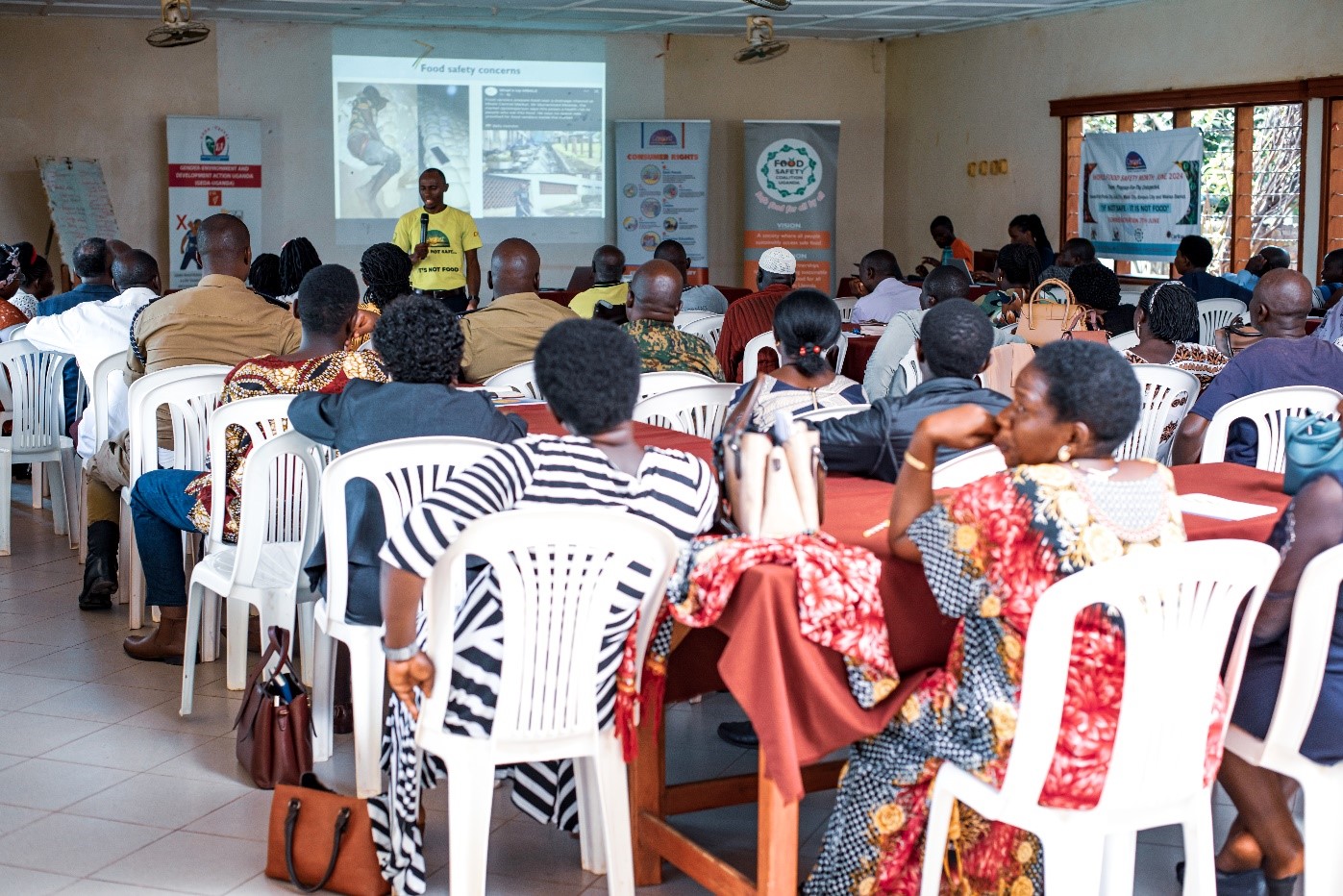An estimated 600 million people worldwide fall ill annually due to unsafe food, with 420,000 of these cases resulting in death. The world currently has an approximate population of 8 billion people and thus the 600 M equates to about 7.5% of this global population.
To emphasize the need for coordinated global efforts to tackle food safety issues, the Food and Agriculture Organization (FAO) of the United Nations and the World Health Organization (WHO) established the World Food Safety Day, first observed on June 7, 2019. Since then, every year on June 7, the world reflects on the challenges posed by unsafe food.
This year's commemoration was held under the theme "Prepare for the Unexpected."
In this context, the Global Consumer Center (CONSENT) in partnership with Kasese District Local Government, GEDA-Uganda and the Food Safety Coalition of Uganda (FoSCU) commemorated World Food Safety Day in Kasese District. The event engaged various district stakeholders, including political and technical representatives, religious leaders from the Anglican, Catholic, and Muslim communities, security personnel from the police, UPDF, traffic police and the media houses such as Guide Radio, Messiah FM, Light FM, UBC Ngeya, New Vision and Daily Monitor. These stakeholders play a crucial role in reaching diverse audiences.
Kasese District has been significantly affected by unsafe food practices such as using rodent poisons in post-harvest handling, consumption of "Nsanga meat" (rotten meat), smelly salted bony fish, drying maize and cassava on tarmac roads and other rudimentary post-harvest handling methods that have been reported to increase the risk and severity of food contamination. All the above practices have greatly contributed to consumption of contaminated food resulting into the ever increasing prevalence of food born illnesses in the District ..
Several food safety awareness and promotional campaigns including radio talk shows, training and capacity building sessions on food safety and nutrition and road drives targeting various stakeholder groups within Kasese Municipality were conducted during the World Food Safety week within Kasese District and Municipality
Speaking at the inauguration of the week-long activities at Verina Gardens, the Chairperson of Kasese District, Mr. Eriphazi Muhindi Bukombi, praised the efforts of the partners like CONSENT in combating poor food handling practices. He expressed the district's support for such initiatives and acknowledged the dedication of the Hon. District Councilors and the technical team who attended the training on food safety and nutrition. He urged them to become ambassadors of the food safety message within their communities. Mr. Bukombi also noted that the district's interest in this topic was sparked during World Consumer Day in March when CONSENT engaged them on issues related to consumer rights and food safety.
During the inaugural training session, the main facilitator, Mr. Bwambale Benard, Head of Programs at CONSENT, emphasized the importance of leaders not only adhering to the food safety message but also actively promoting it at community level. He highlighted the consistency of leaders frequently discussing topics like the Parish Development Model (PDM) at public functions while neglecting critical issues that directly impact the health and well-being of their communities such as food safety and nutrition.
Mr. Bwambale advised community leaders to adopt a division of roles to ensure comprehensive, effective and efficient community sensitization on food safety and nutrition that are key for healthier living and human capital development. He took leaders through some examples on how they can all leverage on the same social event to create mass community awareness on different aspects for instance, the local council one chairperson(LCI) could discuss the PDM, a councilor addresses the community on food safety and the district chairperson could focus on nutrition. This approach would allow different important messages to be effectively conveyed to the audience.
Mr. Bwambale engaged leaders in various discussions on food safety and nutrition, highlighting the critical challenges at hand that affect the quality of food and the nutrition status of the citizens. Leaders at all levels acknowledged the magnitude of these issues. Many admitted to being victims of common food safety problems, such as ignoring expiration dates on products, consuming food cooked in polythene bags, and the misuse of agro-chemicals among others.
The different stakeholders made commitments towards promoting food safety practices in Kasese to prevent the potential unexpected health and social economic threats related to unsafe food in the district and beyond

